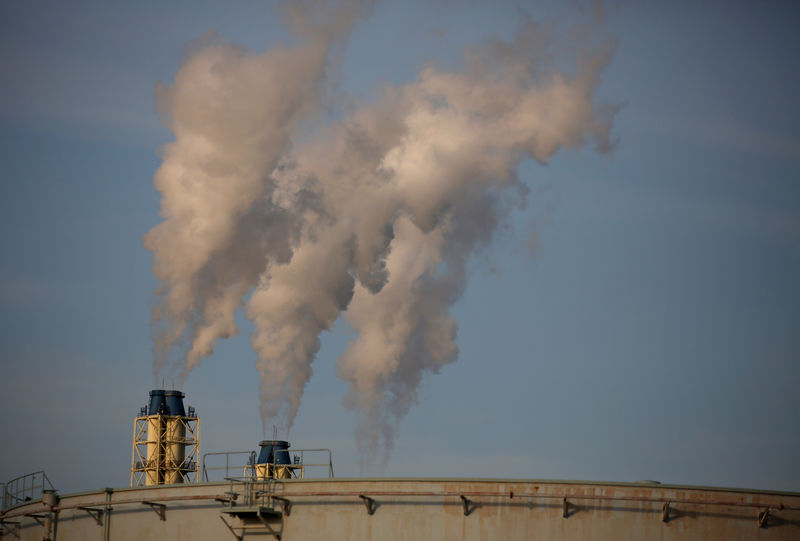 © Reuters. Steam is emitted from a oil refinery in Sodegaura, Japan
© Reuters. Steam is emitted from a oil refinery in Sodegaura, JapanTOKYO (Reuters) – Japanese buyers are unlikely to load Iranian oil after April 1 without an extension of the country’s current waiver because of the difficulty in making payments before sanctions are reimposed in early May, the Petroleum Association of Japan (PAJ) said on Tuesday.
Japan’s oil loadings from Iran are likely to be heavy in January-March, although some fresh shipments might take place around end-December, PAJ president Takashi Tsukioka told reporters.
In recent years, Japan has generally avoided loading Iranian crude in March as refiners wait for the government to extend sovereign ship insurance to the new financial year that starts every April. It was unclear whether the same pattern may emerge next March, Tsukioka said.
The United States granted exemptions to Japan and seven other countries on Nov. 5, allowing them to temporarily continue buying Iranian oil for another 180 days, after Washington reimposed sanctions on Iran’s banking, energy and shipping industries.
Japan’s oil refining industry will continue to ask the government for an early extension of the waiver after the initial 180-day exemption ends, Tsukioka said.
Refiners in Japan and South Korea are looking to resume Iranian oil imports from January after receiving waivers, sources familiar with the matter have said.
Tsukioka said he didn’t know how much oil Japan could buy from Iran during the 180 days.
Japan’s second-biggest refiner Idemitsu Kosan (T:) hopes to buy the remainder of its contractual volumes of Iranian oil during the exemption period, said Tsukioka, who also serves as Idemitsu’s chairman, though the volumes it buys are limited.
Idemitsu’s processing of Iranian crude is about 1 percent of its total annual refining volumes, a company official said in August.
Fusion Media or anyone involved with Fusion Media will not accept any liability for loss or damage as a result of reliance on the information including data, quotes, charts and buy/sell signals contained within this website. Please be fully informed regarding the risks and costs associated with trading the financial markets, it is one of the riskiest investment forms possible.
Source: Investing.com





























